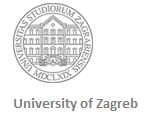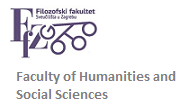Home » 7. i 9. semestar : KNJIŽEVNI KOLEGIJI
Category Archives: 7. i 9. semestar : KNJIŽEVNI KOLEGIJI
The History and Paradigms of American Studies 1 (25/26)
Course title: The History and Paradigms of American Studies 1 (A) (19/20. st.) (6 ECTS) Instructor: Dr. sc. Jelena Šesnić ECTS-credits: 6 Semester: 1 or 3 Status: elective (obligatory for American Studies majors in the 1st semester) Enrollment requirements: enrollment in the 1st and/or 3rd semester Course schedule: Mon, 11-12:30, A-123; Wed, 1:15-2, A-105 Ofice: […]
The History and Paradigms of American Studies 1 (Šesnić, 2022)
Course title: The History and Paradigms of American Studies 1 (A, 19th/20th) Literary Seminar (MA Level): The History and Paradigms of American Studies 1 (A, 19th/20th) Instructor: Dr. Jelena Šesnić ECTS credits: 6 Status: elective (obligatory for American Studies majors in the 1st semester) Enrollment requirements: enrollment in the 1st and/or 3rd semester Fall 2023/24 […]
Images of American Politics in Literary and Visual Media
Naziv kolegija: Prikazi američke politike u književnosti i vizualnim medijima (A, 20. st.) Course title: Images of American Politics in Literary and Visual Media (A, 20th c.) Instructor: Dr. Jelena Šesnić, Full Prof. Requirements: Enrollment in the MA program in English. Fall 2021/2022 Mon, 11-12:30 (A-123) Wed, 13:15-14 (A-105) E-mail: jsesnic@ffzg.hr Phone: 01-4092060 Office: B-018 […]
The History and Paradigms of American Studies 1 (Šesnić, 2021)
Course title: The History and Paradigms of American Studies 1 (A, 19/20) Literary Seminar (MA Level): The History and Paradigms of American Studies 1 (A, 19/20) Instructor: Dr. Jelena Šesnić ECTS credits: 6 Status: elective (obligatory for American Studies majors in the 1st semester) Enrollment requirements: enrollment in the 1st and/or 3rd semester Fall 2021/22 […]
English Baroque Poetry (Brlek)
Course title: English Baroque Poetry Instructor: Assoc. Prof. Tomislav Brlek ECTS credits: 6 Status: elective Semester: 1st and 3rd semester Enrollment requirements: enrollment in the 1st or 3rd semester of the graduate programme of the English Department Course description: The mail goal of the course is to relocate English literature of the early seventeenth century […]
Modern British Novel and the British Empire
Modern British Novel and the British Empire Course title: Modern British Novel and the British Empire Instructor: Prof. Borislav Knežević ECTS credits: 6 Status: elective Semester: 1st and 3rd Enrolment requirements: Enrolment in the graduate programme of the English Department Course description: In this course we will read a selection of novels by British authors […]
Re-presenting Los Angeles and the American City in Media
Course Title: Re-presenting Los Angeles and the American City in Media Instructor: Dr. Leo Zonn Semester: winter or summer semester 2010/11 The University of Texas at Austin, Fulbright Visitor Course Title: Re-presenting Los Angeles and the American City in Media Eligible Students: Graduate, Elective Course ECTS credits: 6 Course Description: The purpose of this course […]
Pre-Raphaelitism
Course title: Pre-Raphaelitism Instructor: Professor Tatjana Jukić ECTS credits: 6 Language: English Semester: 1 or 3 Enrollment requirements: Enrollment in the graduate programme Course description: The course explores how literature intersects with visuality in Victorian culture, with the emphasis on the Pre-Raphaelite Brotherhood. Taking Foucault’s discussions of the nineteenth century as our point of departure, […]
Images of American Politics in Literary and Visual Media (2019)
Course title: Images of American Politics in Literary and Visual Media (A, 20th c.) Instructor: Dr. Jelena Šesnić, Full Prof. Winter 2019/2020 Mon, 11-12:30 (A-123) Wed, 13:15-14 (A-105) E-mail: jsesnic@ffzg.hr Phone: 01-4092060 Office: B-018 Office hours: Mon, 12:30-13:30 p.m.; Thur, 11-12 a.m. Requirements: Enrollment in the MA program in English. Course description: American political system […]
Modern British Novel and the British Empire (arch.)
Course title: Modern British Novel and the British Empire Instructor: Prof. Borislav Knežević ECTS credits: 6 Status: elective Semester: 1st and 3rd Enrollment requirements: Enrollment in the graduate programme Course description: In this course we will read a selection of novels by British authors (Kipling, Conrad, Woolf) and one novel (by Tagore) written in India […]
Contemporary U.S. Ethnic Literatures (2017/18)
Dr. Jelena Šesnić Literary seminar: Contemporary U.S. Ethnic Literatures (1st/2nd Year) (A, 20th c.) Winter 2017/2018 Semester: 1 or 3 Mon 11-12:30 (A-123) Wed 13:15- 14 (A-105) E-mail: jsesnic@ffzg.hr Phone: 01-4092060 Office hours: Mon, 12:30-1:30 pm; Thu, 11-12 am Course description: The course examines a very innovative and dynamic section of contemporary US literary/cultural production—literature […]
Architext in postmodern British literature
Course title: Architext in postmodern British literature Instructor: Assoc. Prof. Vanja Polić ECTS credits: 6 Status: elective Semester: 1st and 3rd semester Enrollment requirements: enrollment in the 1st or 3rd semester Course description: The course offers an insight into the postmodern British novel with a focus on the dialogue that the postmodern literature sets up […]
History and Memory in Contemporary American Novel
Course title: History and Memory in Contemporary American Novel Instructor: Assoc. Prof. Jelena Šesnić ECTS credits: 6Language: English Status: elective Semester: 7th and 9th semester Enrollment requirements: enrollment in the 7th or 9th semester ________________________________________________________________________________Dr Jelena ŠesnićLiterary Seminar (MA): History and Memory in Contemporary American NovelFall 2016/2017Mon, 11-12:30 (A-123)Wed, 13:15-14 (A-105)Office: B-018Phone: 4092060E-mail: jsesnic@ffzg.hrOffice hours: […]
Croatian-American Ethnic Literature
Course title: Croatian-American Ethnic LiteratureInstructor: Asst. Prof. Jelena ŠesnićECTS credits: 6Status: electiveSemester: 7th and 9th semester (winter)Enrollment requirements: enrollment in the 7th or 9th semester
A Historical Survey of the Fantastic in British Literature
Course title: A Historical Survey of the Fantastic in British Literature Instructor: Assoc. Prof. Iva Polak ECTS credits: 6 Status: elective Semester: 1 and 3 Enrollment requirements: enrollment in Semester 1 and/or 3 Course description: The course offers a historical survey of OE, ME and ModE texts till the late 19th century that appropriate fantasy […]



